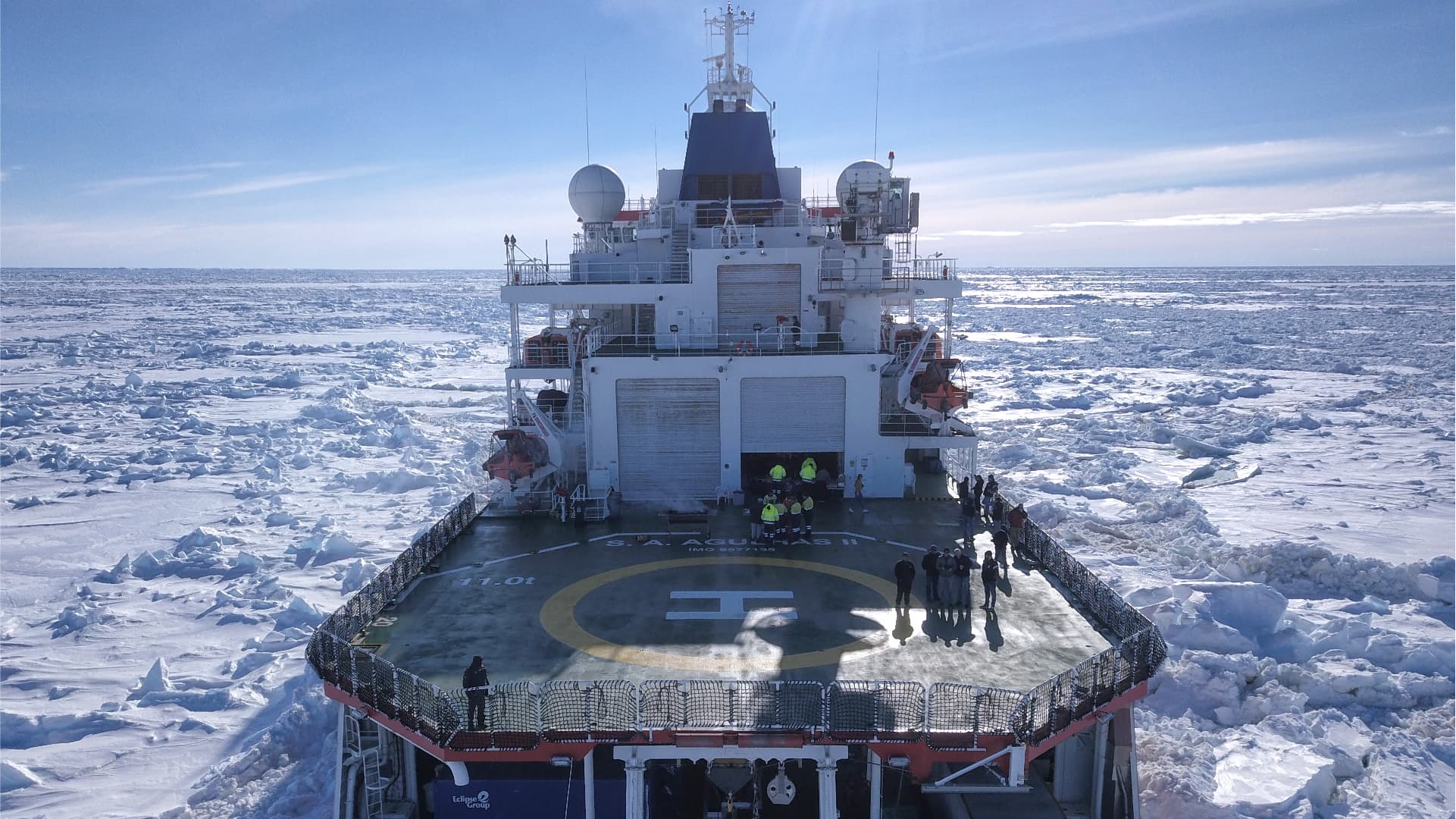- A research expedition to Marion Island has led to some alarming findings by researchers.
- Not only is the ocean around the island warming, CO2 absorbed by the Southern Ocean means it is getting more acidic.
- Should these conditions make it to Antarctica, we may trigger a tipping point in our climate from which there is no coming back.
The Department of Forestry, Fisheries and the Environment’s Oceans and Coasts team recently concluded a research expedition to Marion Island. The findings of that expedition are cause for alarm.
Riding aboard the SA Aghulhas II, the Oceans and Coasts team along with a few collaborators, deployed underwater drones to measure carbon dioxide levels in the Southern Ocean. The ocean is said to capture roughly 20 percent of humanity’s CO2 emissions and as a result, it is becoming more acidic. This poses a significant threat to marine biodiversity in the region.
Instruments deployed between Marion and Prince Edward Islands reveal that warmer waters from the North are reaching the area more frequently. This disrupts organisms, plants and creatures that thrive and rely on the col-water environment.
“This data signals the need for close monitoring, as shifts in ocean temperature will affect the region’s delicate biodiversity,” Minister of Forestry, Fisheries and the Environment, Dion George noted. “Thanks to the SA Agulhas II we are unlocking insights that will shape marine protection for years to come.”
Marion Island is one of two islands in the Prince Edward Island which is technically part of the Western Cape. While there is very little vegetation, it is a prime destination for research expeditions. Research on the island revolves around weather and climate, the interaction between life on land and the ocean and much more.
Its location also makes it a good way to measure how human activity touches every part of the planet, especially this latest research. This may be something of an early warning system as if warmer, acidic waters are making it their way that far South, eventually they will touch Antarctica.
The biggest fear among climate scientists and activists is that as the climate changes, ecosystems such as the Antarctic will be disrupted. Should that happen and the ice caps begin thawing, coastal areas will disappear at a far faster rate than they currently are.
Unfortunately, the folks with the power, funds and ability to make changes that would prevent this, are too preoccupied with terraforming a distant planet to avoid the Sun expanding in billions of years.
Several areas in Antarctica are classified as tipping points. If humanity reaches these tipping points, ecosystems will be forever changed and there is no going back to how things were. Sadly, folks seem more preoccupied with debating whether we are on the verge of a climate crisis in the face of ever growing evidence backing that up, to do anything about it.
Given that the oceans are warming and getting more acidic, it may already be too late to stop the carnage we’re witnessing on a tiny island 2 100km from Cape Town.

